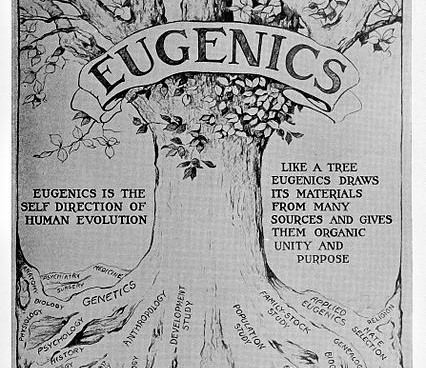From small beginnings: to build an anti-eugenic future
By Benedict Ipgrave, Miroslava Chavez-Garcia, Marcy Darnovsky, Subhadra Das, Charlene Galarneau, Rosemarie Garland-Thomson, Nora Ellen Groce, Tony Platt, Milton Reynolds, Marius Turda, Robert A Wilson,
The Lancet
| 05. 21. 2022
September, 1921 was unusually hot and New York was sweltering. For the many immigrants who crowded the city's tenements and pavements, one of the few places for relief from the incessant heat was the American Museum of Natural History. That summer the museum presented a new exhibition with rows of human skulls, snapshots of patients in psychiatric institutions, and the preserved brain of a serial killer. It was all terribly macabre. The immigrants among the museum's visitors who read the leaflet distributed at the entrance soon discovered that this exhibition was all about them. It included charts showing how migration eroded societies, statistics from IQ tests of arrivals at Ellis Island, and posters spouting anti-migrant rhetoric. All conveyed the same message: “your tired, your poor, your huddled masses yearning to breathe free” were not welcome here.
Meanwhile, just upstairs the Second International Eugenics Congress was in full swing. The ramifications of this conference would be felt across the world. Leading eugenicists at the conference argued that the science of eugenics would enable the betterment of the human “race” by selective...
Related Articles
A review of More Everything Forever: AI Overlords, Space Empires, and Silicon Valley’s Crusade to Control the Fate of Humanity, by Adam Becker
For several decades, amorphous groups of self-appointed visionaries have been trying not just to imagine the future, but to create it. Many of them work (or invest) in high tech – digital innovations, AI, space-faring, biotech. Silicon Valley is now more of a state of mind than a geographic location or a particular industry. Some of...
By Elizabeth Chuck, NBC News | 05.19.2025
By Staff, Reuters | 05.22.2025
Italy's Constitutional Court said on Thursday that same-sex female couples who use in vitro fertilization (IVF) abroad can both be legally recognised as parents in Italy, even if one is not the biological mother.
The ruling is likely to be...
By Hannah Devlin, The Guardian | 05.23.2025
The sperm of a man carrying a rare cancer-causing mutation was used to conceive at least 67 children, 10 of whom have since been diagnosed with cancer, in a case that has highlighted concerns about the lack of internationally agreed...




